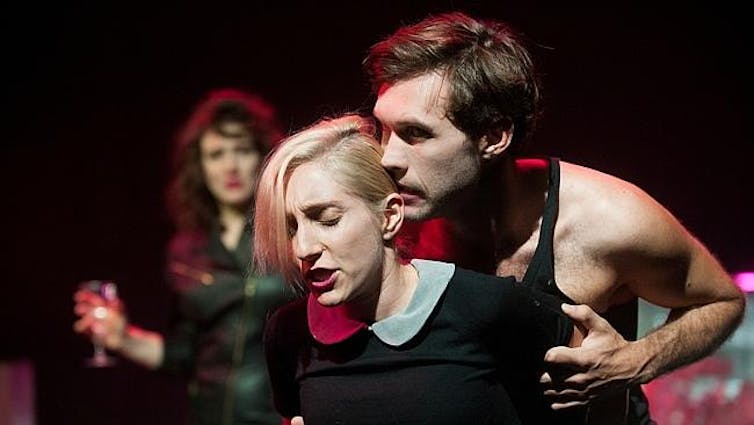
If John Waters - think Pink Flamingos rather than Offspring - were writing plays, he’d be penning things like the House of Yes.
Made into a film in 1997 - Parker Posey in the lead - the story began life as a play by Wendy MacLeod in 1990. And it’s on stage again - with neon, histrionics and a mixed-bag of American accents - courtesy of the Little Ones Theatre.
Decades on and the play remains topical, remains controversial, for daring to tackle one of pop culture’s supposed last taboos: incest. And while it might be the reason that the story still has a feeling of freshness - and really, 1990 isn’t so long ago in the context of sibling-sex mores anyway - in fact, The House of Yes is actually about much more than those naughty acts that shouldn’t titillate but often do.
The unorthodox relationship between a pair of twins - “Jackie’s hand was holding Marty’s penis when they came out the womb” reveals Mom (Josh Price) - is the past that forms the backdrop, and indeed the spectre, for Macleod’s take on that beloved American story: the tumultuous holiday get-together.
Jackie O (Genevieve Giuffre) - self-nicknamed for a costume she once wore to a party - has been out of the asylum for six months. Her twin, Marty (Benjamin Rigby), apparently went for a less traditional form of therapy and treated himself via engagement to the doughnut wench, Lesly (Anna McCarthy).

A storm, both literal and, of course, metaphorical, is on its way and in the midst of a blackout trouble and secrets will be an inevitable part of the downpour.
For Marty, Lesley represents his new life; a life centered on domestic normalcy and one far removed from the excessive permissiveness of his childhood home (and referenced in play’s title). Jackie O however, is neither able part with her costume nor her past:
Jackie O: What about what we have?
Marty: Had.
Jackie O: I don’t recognise the past tense.

It is, indeed, the exchange of the play.
I wholeheartedly despise the word closure and have never understood its liberal use in pop psychology, in the aftermath of court cases and as justification for draconian punishments.
Post-play and my companion and I duelled over our respective definitions of that dastardly word.
Him, and it’s all about how active the wound is. About whether you’re still actively masticating, overthinking, restaging. That closure comes when the event is no longer at the forefront of your conscience.
Pfft.
For me, as soon as you acknowledge that the person you are is a product of all your good, and less so experiences, then nothing is ever really “closed”.
In my case, I relate a tad too strongly to the line from The National’s “Sorrow” - “I don’t wanna get over you” - and equally, have never believed in the predictability of the crap that will reopen a scar. Putting the egg being put back together has always sounded a tad ridiculous to me.
While The House of Yes gets its spotlight because of the kinky sex, much more interesting are the questions posed about whether our formative moments can ever be moved on from, overcome, and whether in fact, doing so should even be a priority.
The House of Yes is currently on at Theatreworks in St Kilda until December 13th, 2014.
